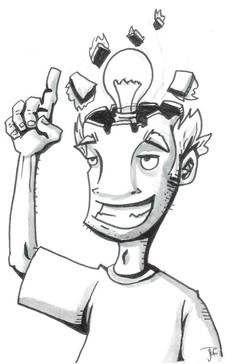Files and LinksWhat is Knowledge
Multiple Intelligence
http://www.literacynet.org/mi/assessment/findyourstrengths.html Myers Briggs
| |||||||||||||||||||
| tok_unit_1_part_1_pdf.pdf |
| how_to_disagree.docx |
Gun Violence Charts
https://www.vox.com/policy-and-politics/2017/10/2/16399418/us-gun-violence-statistics-maps-charts
https://www.vox.com/policy-and-politics/2017/10/2/16399418/us-gun-violence-statistics-maps-charts
| tok_unit_3_part_1.pdf |
| tok_unit_3_part_2.pdf |
| love_is_a_fallacy.docx |
| knowledge_acquisition_interaction.pdf |
| tok_columbusing.docx |
| tok-tkppd_2016.pdf |
Blind Spot
https://serendip.brynmawr.edu/bb/blindspot1.html serendip.brynmawr.edu/bb/blindspot1.html
Mr. Black's Theory of Knowledge Section
The information in the section is designed for those taking the TOK course.

TOK plays a special role in the Diploma Programme by providing an opportunity for students to reflect on the nature of knowledge. The task of TOK is to emphasize connections between areas of knowledge and link them to the knower in such a way that the knower can become aware of his or her own perspectives and those of the various groups whose knowledge he or she shares. TOK, therefore, explores both the personal and shared aspects of knowledge and investigates the relationships between them.
The raw material of TOK is knowledge itself. Students think about how knowledge is arrived at in the various disciplines, what the disciplines have in common and the differences between them. The fundamental question of TOK is “how do we know that?” The answer might depend on the discipline and the purpose to which the knowledge is put. TOK explores methods of inquiry and tries to establish what it is about these methods that makes them effective as knowledge tools. In this sense TOK is concerned with knowing about knowing.
The individual knower has to try to make sense of the world and understand his or her relationship to it. He or she has at his or her disposal the resources of the areas of knowledge, for example, the academic disciplines studied in the Diploma Programme. He or she also has access to ways of knowing such as memory, intuition, reason and sense perception that help us navigate our way in a complex world.
Discussion forms the backbone of the TOK course. Students are invited to consider knowledge questions against the backdrop of their experiences of knowledge in their other Diploma Programme subjects but also in relation to the practical experiences offered by CAS and the formal research that takes place for the extended essay. The experiences of the student outside school also have a role to play in these discussions, although TOK seeks to strike a balance between the shared and personal aspects of knowledge.
Knowledge can be seen as the shared legacy of mankind, a legacy which has been shaped and influenced by a wide range of cultures. This era of increased global interconnectedness promises unprecedented possibilities for interaction and enhancement of mutual understanding arising from the nurturing of
international-mindedness.
The Chinese anticipated a period of “Tai”, a time when communication between individuals and the world at large is totally open and people are receptive to new ideas. The TOK course provides an ideal vehicle for such global exchange and beneficial action through its examination of shared and personal knowledge in
an atmosphere of critical and reflective inquiry.
- IB TOK Guide
The aims of the TOK course are to:
- Make connections between a critical approach to the construction of knowledge, the academic disciplines and the wider world
- Develop an awareness of how individuals and communities construct knowledge and how this is critically examined
- Develop an interest in the diversity and richness of cultural perspectives and an awareness of personal and ideological assumptions
- Critically reflect on their own beliefs and assumptions, leading to more thoughtful, responsible and purposeful lives
- Understand that knowledge brings responsibility which leads to commitment and action.
- Identify and analyse the various kinds of justifications used to support knowledge claims
- formulate, evaluate and attempt to answer knowledge questions
- examine how academic disciplines/areas of knowledge generate and shape knowledge
- understand the roles played by ways of knowing in the construction of shared and personal knowledge
- explore links between knowledge claims, knowledge questions, ways of knowing and areas of knowledge
- demonstrate an awareness and understanding of different perspectives and be able to relate these toone’s own perspective
- explore a real-life/contemporary situation from a TOK perspective in the presentation.
VERY HELPFUL LINK FOR POSSIBLE KNOWLEDGE QUESTIONS - http://www.facebook.com/pages/theoryofknowledgenet/193712391147?ref=ts
You can search for this page on facebook by looking up theoryofknowledge.net if the link above does not work.
